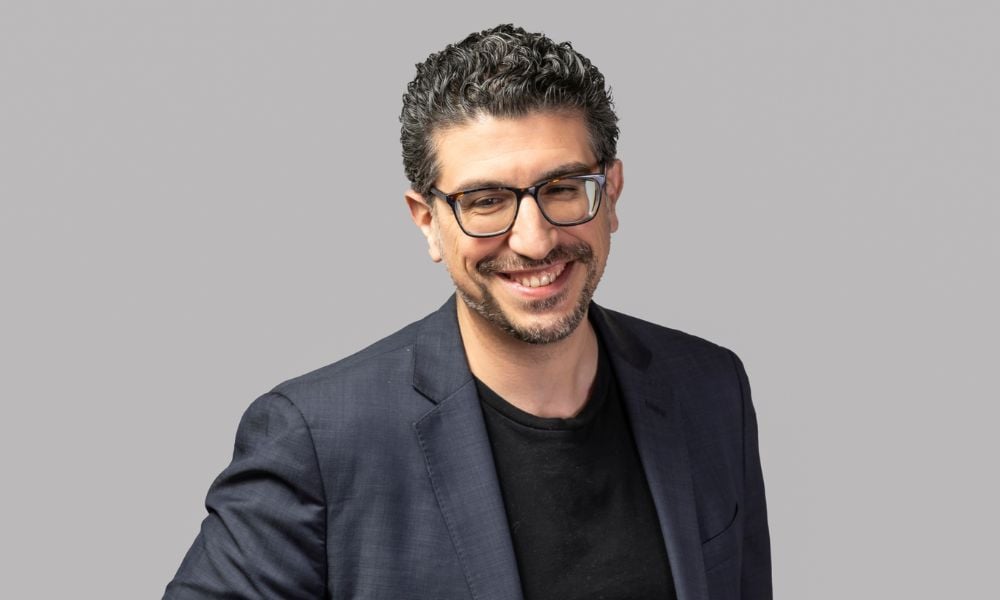
On the horizon: upfront aggregation of assets and liabilities, centralized repository of intentions

When COVID-19 forced Cirque du Soleil into bankruptcy, Davide Pisanu volunteered himself as a cost saving.
The lawyer had spent seven years as senior counsel at Canada’s Foreign Affairs Ministry, gone to business school, and worked with a few startups before joining the global management consultant McKinsey & Company. He left to start his consulting firm, Juniper. Then a former McKinsey senior partner invited him to take on a “transformation role” at Cirque du Soleil, where he ran the residential division, which included the Blue Man Group portfolio.
“I didn’t want to be part of the whole bankruptcy and rebuilding of Cirque,” he says, so he went back to his consulting business.
Then he met with another former McKinsey colleague, Francois Lafortune, founder of the venture fund Diagram Ventures. They discussed the business opportunity presented by the “largest wealth transfer in human history,” unfolding over the next 25 years.
“In North America alone, $65 trillion are going to pass from one generation to the next,” says Pisanu. “That’s three times the GDP of China. And mortality is going to increase in the next 25 years – roughly, a 40-percent increase in mortality in North America alone.”
Alex Gauthier, with whom Pisanu would later found ClearEstate, had been the executor for his late mother’s estate. His experience aligned with their survey results, where 75 percent of respondents who had acted as an executor described it as “one of the toughest challenge of their lives.”
“Anecdotally, one of our clients describes it as the second toughest challenge of his life after his divorce,” says Pisanu. “A very, very painful process – hundreds of hours, tons of paperwork, probate, taxes, dealing with financial institutions, dealing beneficiaries. A real nightmare.”
For ClearEstate, they imagined a TurboTax for estate administration, a service that would guide the executor through the process by absorbing information, delivering outputs such as probate forms and taxes, and that would tell them how to distribute assets and manage beneficiaries. Pisanu and his partners launched a version in March 2021 with “very low adoption.”
“There’s a couple of reasons for that,” he says. “Number one is your typical executor is between 55 and 65 – so, not quite the TikTok generation. And second, typically, people that are going through this are not going to go through this multiple times in their life.”
Whereas users of online tax filing services have an incentive to learn the software because they need to use it every year, a person will, typically, only be an executor once. More than just a software solution, people are looking for advice and guidance, says Pisanu. They switched to a “tech-enabled service model,” emphasizing customer service, where the software is doing the background work, but the user has someone to answer their questions.
Users began to ask, “If you do estate administration, can you help us plan?” So, they launched a planning product and evolved from TurboTax for estate administration into a “digitally native trust,” he says.
In addition to their seed, seed extension, and Series A funding rounds, ClearEstate has inked partnerships with Concentra Trust and Sorrell Private Trust. The company is operating across Canada and in California, Texas, New York, and Florida, and plans on using its anticipated Series B to significantly expand their U.S. reach by developing a national platform, says Pisanu.
When he looks 25 years into the future, the “ideal version” of estate planning and administration is leaving behind pen and paper and the post-death scavenger hunt of collecting a complete tally of the deceased’s assets and liabilities.
Drafting directions for asset dispersal is less clear than coding intentions into a central depository, where the user can tag where they want their assets to go, with the machine advising whether that’s legal in their jurisdiction, he says. In the future, Pisanu also expects that through a person’s social insurance number, we will be able to capture a clear vision of a person’s assets and liabilities, rather than needing to ask all the financial institutions and other parties which each have a piece of it. He says that the future of estate planning is up-fronting the executor’s work and building a full aggregate of what needs to be distributed on death.
“Therefore, when somebody dies, you press on a button, and there are no doubts, and there’s no litigation around what’s going to happen.”
“I think the idea that you go in front of a lawyer like you used to go in front of a priest and share things, and these things are in this weird vault in an office somewhere – that’s not how the 21st century is going to work. Therefore, we need to, more and more, make this easily accessible, reduce friction, make aggregation easier and make the storage of information easier.”